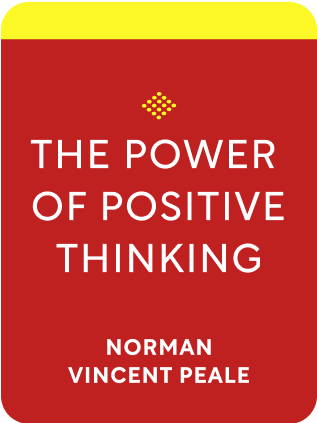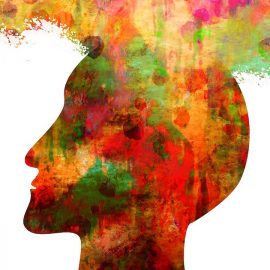

This article is an excerpt from the Shortform book guide to "The Power of Positive Thinking" by Norman Vincent Peale. Shortform has the world's best summaries and analyses of books you should be reading.
Like this article? Sign up for a free trial here .
Do you believe that happiness is a choice? How does one choose to be happy?
We create our own happiness in this life, and we get to decide if we’re happy or unhappy. Abraham Lincoln said, “Most folks are as happy as they make up their minds to be.” One way to choose to be happy is to cultivate a happiness habit.
Here is how you can get into the habit of being happy.
Happiness Is a Choice
If you want to be unhappy, filled with fear, worry, resentment and hate, you can choose unhappiness by going around complaining that things aren’t going your way. Even though bad things in life can and do happen, we can manufacture unhappiness by thinking unhappy thoughts and having unhappy attitudes. We think we’re not getting our due and the good fortune of others is undeserved. This manufactured personal unhappiness compounds all the normal difficulties in life we have no control over.
The good news is that happiness is achievable for us all, if we want it and if we apply the right formula. For example, instead of telling yourself that things never go your way, you can focus on telling yourself that life is good.
Children are naturally more attuned to happiness. With their pure, spiritual simplicity, they are able to see the beauty in the commonplace. For example, Peale’s 9-year-old daughter explained to him that she was happy because she loved her friends, school, church, and family. When adults can adopt this childlike mindset about happiness, they can find this same happiness with their associates, work, and home.
The Happiness Habit
One way of choosing happiness is to cultivate the habit of being happy. When you develop the happiness habit, life becomes more enjoyable every day. Because habits are something you can develop, you have the power to create your own happiness. Here’s how:
- Think happy thoughts. Make a mental list of happy thoughts and run them through your mind throughout the day. If an unhappy thought pops in, for example, you fear that things won’t go well for you that day, eject it by substituting a happy thought—things will go well for you.
- Start your day happy. The morning sets the stage for happiness throughout the day. Before you get up, picture happy experiences the day will bring for you. Peale recommends saying this Psalm (118:24) out loud: “This is the day the Lord has made; let us rejoice and be glad.” He says to personalize it—“I will rejoice.” As you are getting ready, tell yourself it is going to be a great day
- Show happiness in actions and attitudes. Throughout the day, continue with actions and attitudes that promote happiness. Showing others compassion and love is a basic principle of happy living. In other words, practicing love helps to create happiness.
Ralston Young was a man who carried bags in Grand Central Station and was noted for his kindness and compassion. With his customers, he always watched carefully to see what kind of encouragement or hope they needed, and he would pray about the right way to offer it to them. He was moved to tell one woman, pain-ridden and in a wheelchair, how lovely her hat and dress were. This compliment lifted her. He told the woman that prayer made his own pain more bearable. A year later, after she passed away, her daughter came to tell him how much his love and understanding meant to the woman.
When cultivating the happiness habit, stick by some simple principles proven to help you live a happy life, including keeping your heart free of hate, giving more and expecting less, thinking of others, living simply, and keeping the mind free of worry. Practicing these principles for one week will bring you to the beginnings of a happy life.
The Spiritual Component of Happiness
To give these principles of happiness power and make them truly work for you, you have to cultivate spiritual power. A dynamic, inward spiritual change makes living by happiness-producing principles effortless. Using spiritual principles will lead to spiritual power, even if you start out not terribly spiritual.
A spiritual awakening—finding God—can infuse you with happiness and vitality.
On a lecture tour, the author was invited to a party by an attendee. He assumed by his outgoing personality that this would be the wrong kind of party for a preacher. Instead, he found a houseful of happy, vibrant people. He assumed they had been drinking alcohol, but was told that they were all filled with a different kind of spirit—their happiness was due to being renewed spiritually and finding God. Life is about vitality and these people got their vitality from God—the true power that creates happiness.
Conditioning Your Thoughts
Since happiness is determined by your thoughts, you have to find a way to drive out thoughts that lead to depression and discouragement. A technique to do this is to fill your mind with health and happiness-producing thoughts.
The author’s book, “Thought Conditioner,” contains 40 such thoughts. They include 40 passages from the Bible, such as “The kingdom of God is within you” – Luke 17:21.
Peale met a very unhappy man and gave him his “Thought Conditioner” booklet, instructing the man to put one thought in his mind every day for 40 days, letting the healthy thought send quiet and healing energy through his mind. These healthy thoughts are meant to drive out the unhealthy thoughts that sap joy, energy and creativity. After the 40 days the man was overjoyed about how this technique worked for him. He snapped out of his funk of unhappiness and was able to remain a happy person.

———End of Preview———
Like what you just read? Read the rest of the world's best book summary and analysis of Norman Vincent Peale's "The Power of Positive Thinking" at Shortform .
Here's what you'll find in our full The Power of Positive Thinking summary :
- That there is no problem or obstacle you can’t overcome with faith, positive thinking, and prayer
- The practical techniques of applied Christianity
- How to take control of the events in your life rather than be directed by them






